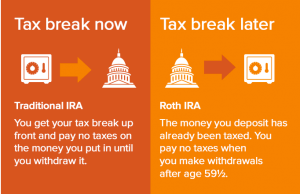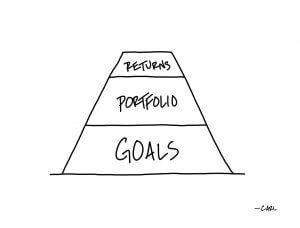
To Roth Or Not To Roth?
RetirementBy: Jude McDonough, CFP® AIF®
Apr 07, 2020
Should I move it into a Roth? That question comes across my desk quite often. Roth IRA’s have really come onto the scene over the last 10 to 15 years. The Economic Growth and Tax Relief Reconciliation Act of 2001 (EGTRRA) enabled 401k plans to offer a Roth option to their employees with no income limitations. That was a significant time for the Roth because it opened up the eligibility to anyone that has access to a company retirement plan. The Roth IRA has income limits associated with eligibility to participate and they generally increase each year. However, those income limits were and continue to be a barrier to entry for many middle-class families who were looking for efficient ways to save money.
In 2010, another major barrier to entry was eliminated when the income limitation was removed for Roth Conversions. I remember in my CFP classes in 2008, my instructor was calling it the financial planning opportunity of a lifetime. The year 2010 came and went, the limitations were lifted, and not nearly as many people took advantage of it as my instructor and other professionals had predicted. The reality is that converting money from an IRA to a Roth IRA has a cost associated with it. If you convert your $100,000 IRA to a Roth IRA, you have to come up with the money to pay income tax on the $100,000. That turned a lot of people off and they decided to keep the money in the IRA. Nonetheless, these laws that were passed brought a lot of attention to the Roth and made everyone think that they need one. What people didn’t and still don’t understand is the steps associated with obtaining one.
Let’s take a step back and explain the difference between a Roth IRA (or 401k) and a Traditional IRA (or 401k). In the Traditional way, you get a tax deduction for money you put in now and pay tax on any money that comes out of the account when you begin accessing the account. In a Roth, you don’t get a tax deduction to contribute, but you don’t pay tax on any money that comes out when you begin accessing it as long as you had a Roth for 5 years or more and are over 59 ½ years of age.
If you want to convert your IRA to a Roth, you have to pay tax on the amount that you convert. Some people will take advantage of a loophole in the tax code called a “backdoor” Roth. However, you need to be very careful with this. The way it works is you can contribute to a “non-deductible” IRA and then immediately convert it to a Roth. This is only necessary if you are over the income limit to contribute to a Roth. The way you can run into issues with this is if you have other IRA assets. The IRS counts the other IRA towards your conversion, and you end up owing taxes on a portion of the conversion. If you have a sizable balance in your IRA, then the majority of your conversion will be taxable, thus eliminating the loophole.
In reverting back to the original question, is a Roth right for you? Of course, you know that answer is going to be that it depends. My rule of thumb is that the younger you are, the more it makes sense. If you can take advantage of compound interest for an extended period of time tax free, then I think it is worth some strong consideration. If you are closer to retirement and have been fortunate enough to build up a lot of wealth, it may be an opportunity to think about the next generation. You can either contribute to a Roth or convert some IRA money to Roth and earmark it for your children or grandchildren. With the 2018 tax cuts, there is no better time than now to consider a Roth conversion.
Finally, if you are participating in a 401k plan and trying to determine whether to contribute through Roth Contributions or Traditional contributions, I would consider your age and your current situation. There is a cost associated with utilizing the Roth contribution option because you miss out on the tax break today. With that in mind, if you are looking for the path of least resistance to get as much as possible in the account, then you are probably better off with the Traditional. If you are still up in the air, then you should take the time to evaluate it further with a professional.
The content is developed from sources believed to be providing accurate information. The information in this material is not intended as tax or legal advice. It may not be used for the purpose of avoiding any federal tax penalties. Please consult legal or tax professionals for specific information regarding your individual situation. The opinions expressed and material provided are for general information.
The views and opinions expressed herein are those of the speaker or writer and do not necessarily reflect the views of Alliance Wealth Advisors, LLC. All opinions are subject to change without notice. Neither the information provided nor any opinion expressed constitutes a solicitation for the purchase or sale of any security. Past performance is no guarantee of future results. Diversification does not guarantee a profit or protect against loss in a declining financial market. All indices are unmanaged and may not be invested into directly.


